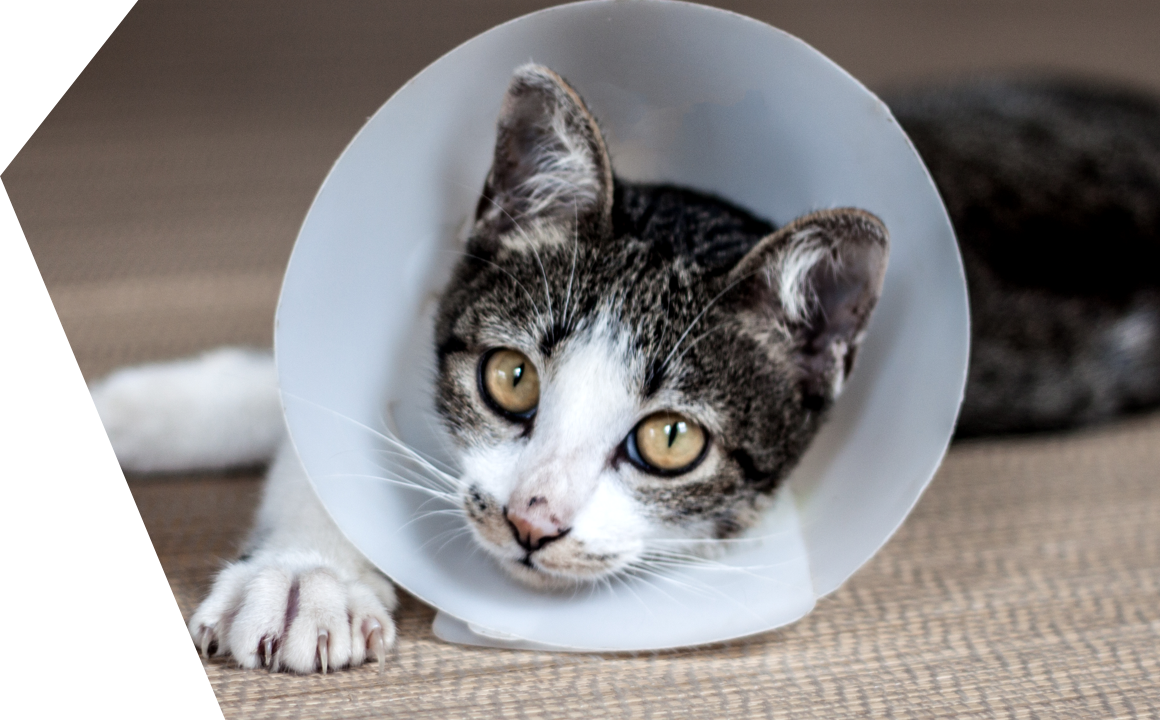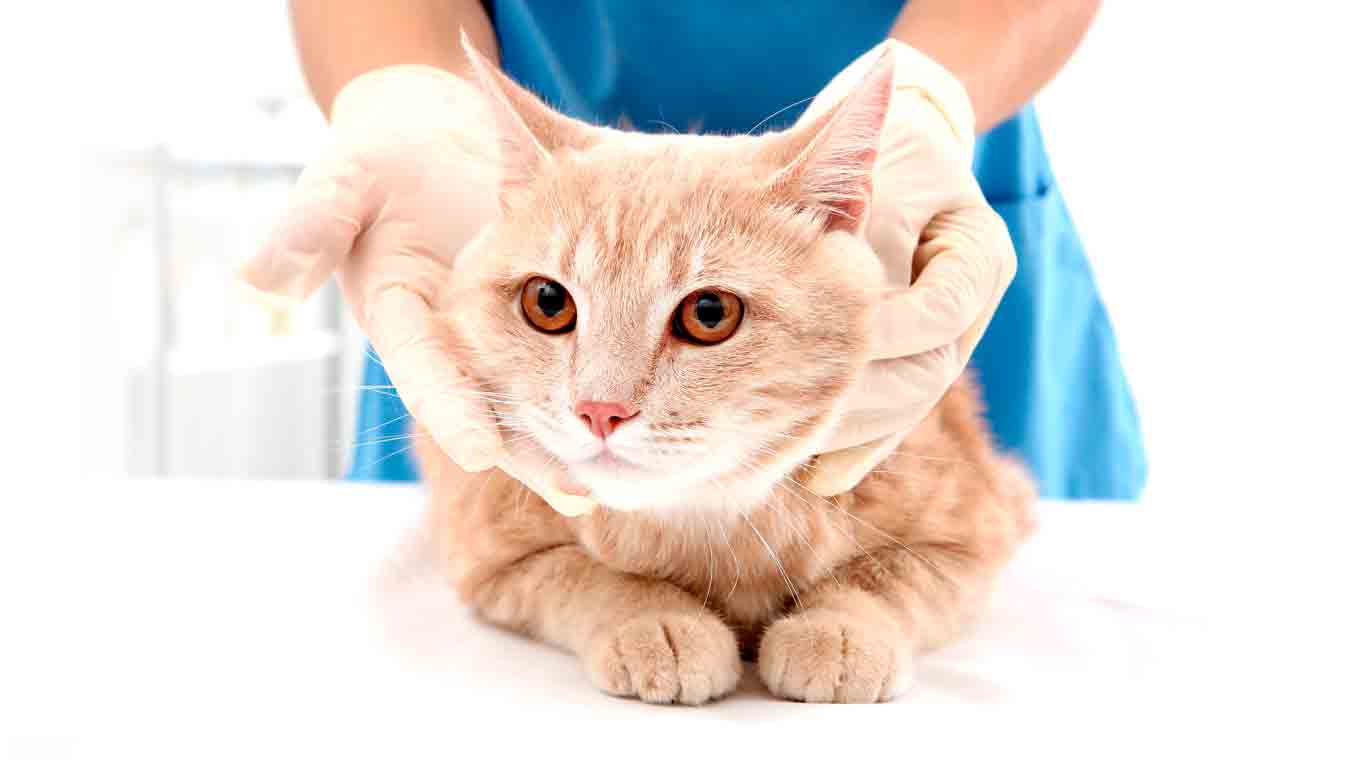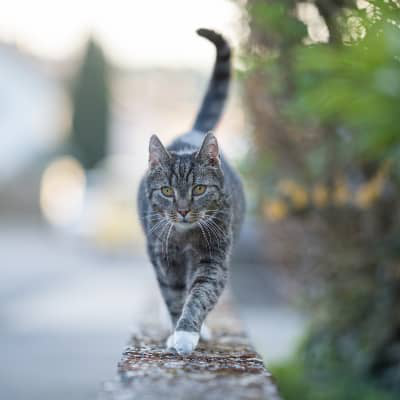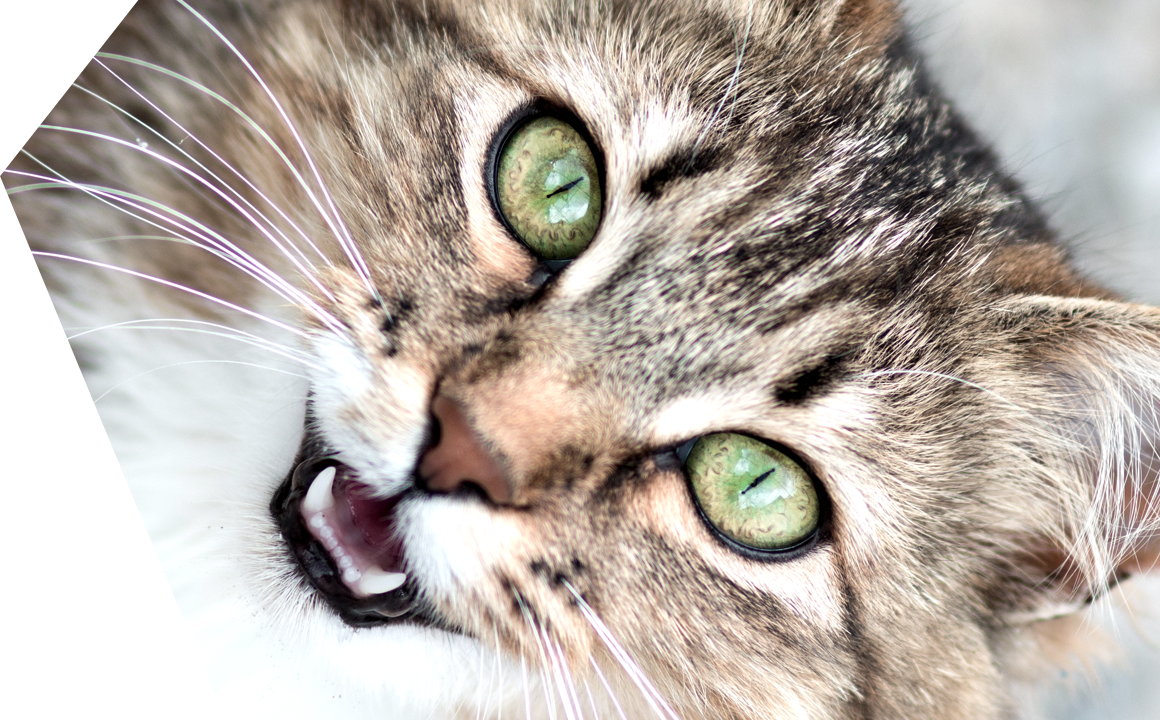HOW TO BEHAVE IN EMERGENCIES

Sometimes it seems that your cat is waiting for any opportunity to get into trouble. Because of this, people who live with felines tend to get used to treating minor injuries and accidents. If on any occasion the situation seems more serious, it is time to act quickly, but whilst staying calm.
Bites and scratches
If they appear with a wound that is bloody or oozing bloody fluid, or an area with fur attached that is inflamed and hot, your cat has doubtless suffered an attack by another animal.Although their injuries look to you to be fairly minor, don’t trust yourself and take them to the vet as soon as possible: they may have internal injuries or be at risk of infection, which you may miss.
Stings
Stings, as well as being painful, can get very inflamed and could also cause an allergic reaction in your cat.Check the area and find the sting to pull it out with tweezers.Afterwards, if the area is red, inflamed or hot, go to the vet’s so that they can treat them with the appropriate corticosteroids.
Poisoning and indigestion
Poisonings by chemical products and venoms should always be treated as quickly as possible by a vet.If they are suffering from diarrhoea after having ingested unsuitable or bad food, the best thing is to fast for no more than 24 hours.If their condition does not improve after a few hours, or if it worsens, then you will also have to go to the vet.
Eye injuries
Eye injuries can have many causes: irritation, scratches from another cat, lacerations incurred from a plant… You will see that the cat’s tendency is to scratch or rub their eye.For this reason, it would be ideal for you to have an Elizabethan collar to hand that you can put on your cat before going to see the vet, to ensure that they do not do themselves any more harm.
prevention
Precaution and prevention are our best weapons to avoid upsets.Avoid any toys that they might swallow, protect your balconies and windows, avoid them having contact with other animals that may harm them, and take chemical products and bait that could poison them out of their sight.
Foreign bodies
Sometimes small objects (spikes from plants, threads and pieces of fabric) may get stuck in their mouth, throat, ears or eyes.You must take special care with needles, pieces of glass and hard plastic.Do not try to extract it yourself, because you could cause further injury.If you see your cat shaking their head, putting it on one side or rubbing their eyes, mouth or ears, go to see a vet as soon as you can.
Bumps, falls and traumas
If your cat is limping, dragging one of their limbs or is immobilised, presents injuries or shows other obvious signs of bumps or bruises, or if they are very quiet and unresponsive, they have undoubtedly suffered a trauma.Wrap them up in a blanket and take them whilst immobilised to your nearest vet.
HAEMORRHAGES
If they are bleeding heavily, carefully apply pressure to the area using a clean cloth, gauze or piece of cotton.If this is insufficient, or you cannot keep applying pressure until you reach the vet’s, you should do some moderately compressive bandaging on the area that is bleeding.
Bites and scratches
If they appear with a wound that is bloody or oozing bloody fluid, or an area with fur attached that is inflamed and hot, your cat has doubtless suffered an attack by another animal.Although their injuries look to you to be fairly minor, don’t trust yourself and take them to the vet as soon as possible: they may have internal injuries or be at risk of infection, which you may miss.
Stings
Stings, as well as being painful, can get very inflamed and could also cause an allergic reaction in your cat.Check the area and find the sting to pull it out with tweezers.Afterwards, if the area is red, inflamed or hot, go to the vet’s so that they can treat them with the appropriate corticosteroids.
Poisoning and indigestion
Poisonings by chemical products and venoms should always be treated as quickly as possible by a vet.If they are suffering from diarrhoea after having ingested unsuitable or bad food, the best thing is to fast for no more than 24 hours.If their condition does not improve after a few hours, or if it worsens, then you will also have to go to the vet.
Eye injuries
Eye injuries can have many causes: irritation, scratches from another cat, lacerations incurred from a plant… You will see that the cat’s tendency is to scratch or rub their eye.For this reason, it would be ideal for you to have an Elizabethan collar to hand that you can put on your cat before going to see the vet, to ensure that they do not do themselves any more harm.
prevention
Precaution and prevention are our best weapons to avoid upsets.Avoid any toys that they might swallow, protect your balconies and windows, avoid them having contact with other animals that may harm them, and take chemical products and bait that could poison them out of their sight.
Foreign bodies
Sometimes small objects (spikes from plants, threads and pieces of fabric) may get stuck in their mouth, throat, ears or eyes.You must take special care with needles, pieces of glass and hard plastic.Do not try to extract it yourself, because you could cause further injury.If you see your cat shaking their head, putting it on one side or rubbing their eyes, mouth or ears, go to see a vet as soon as you can.
Bumps, falls and traumas
If your cat is limping, dragging one of their limbs or is immobilised, presents injuries or shows other obvious signs of bumps or bruises, or if they are very quiet and unresponsive, they have undoubtedly suffered a trauma.Wrap them up in a blanket and take them whilst immobilised to your nearest vet.
HAEMORRHAGES
If they are bleeding heavily, carefully apply pressure to the area using a clean cloth, gauze or piece of cotton.If this is insufficient, or you cannot keep applying pressure until you reach the vet’s, you should do some moderately compressive bandaging on the area that is bleeding.





